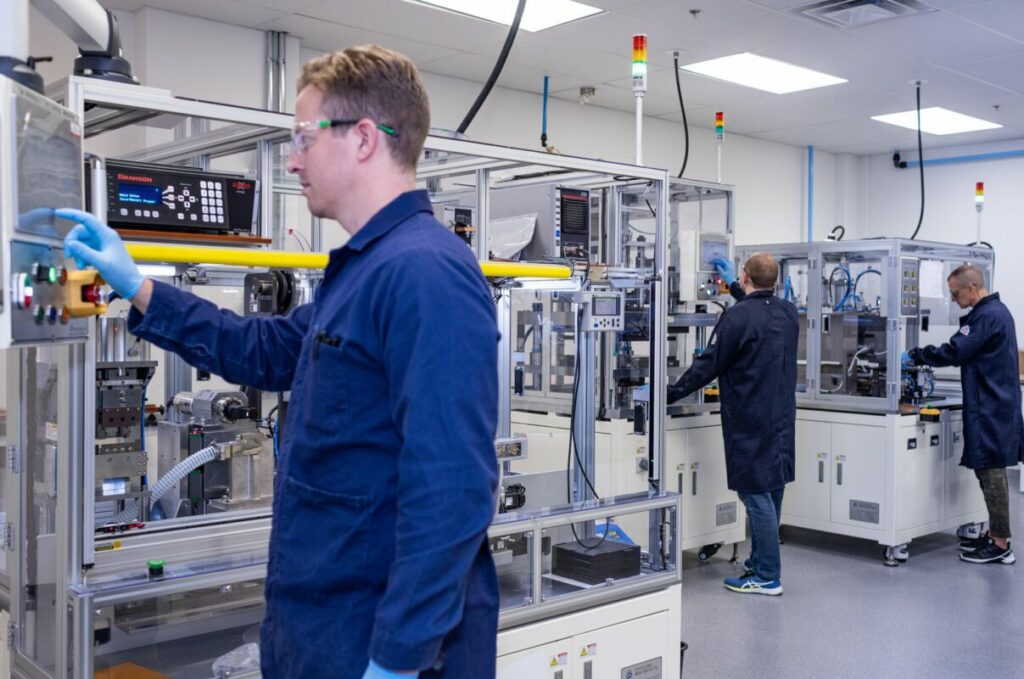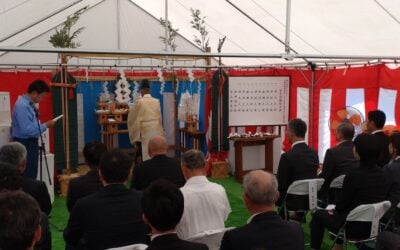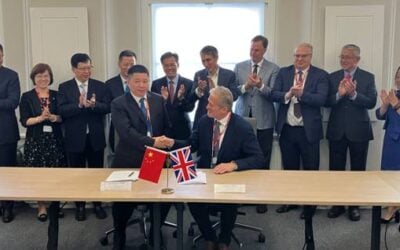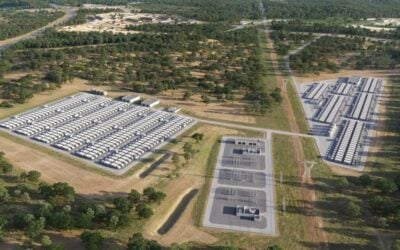
Battery technology startup Alsym Energy is keeping the exact chemistry of its product under wraps for the time being, the company has confirmed to Energy-Storage.news.
As reported by the site yesterday (8 April), Alsym has just raised US$78 million in investment through a Series C, mainly in the form of venture capital (VC) funding from Indian conglomerate Tata, along with three other VC investors.
Enjoy 12 months of exclusive analysis
- Regular insight and analysis of the industry’s biggest developments
- In-depth interviews with the industry’s leading figures
- Annual digital subscription to the PV Tech Power journal
- Discounts on Solar Media’s portfolio of events, in-person and virtual
The company has developed a technology free from cobalt, nickel, and lithium that it claims is not derived from or based on improving anything else available on the market today.
According to Alsym, the battery will be suitable for applications requiring discharge durations of between 4 and 110 hours and can be fully charged in just 4 hours. The company describes this versatility to go from short to long-duration and beyond to multi-day storage as characteristic of the battery being so-called “wide-duration storage”.
Alsym said in a statement sent to Energy-Storage.news in response to our enquiries that the potentially disruptive battery is its “core intellectual property,” of which the company has to be protective. The company stated that while it has “a number” of patents pending review, even patents may not offer sufficient protection, especially in markets outside Europe and North America.
“Once we get to the point where we’re ready to start high-volume manufacturing we know that we’ll have to be less guarded, but until that point, we prefer to keep some things under wraps,” the company said.
Others have chosen similar route
To be clear, this approach is not unprecedented for the energy storage industry. Numerous other companies, including startups emerging from stealth mode and big corporations developing products in-house, have used it.
Multi-day energy storage company Form Energy went for several months after emerging from stealth touting its novel battery tech’s claimed advantages and capabilities, and even announcing a first pilot project with utility Great River Energy in Minnesota shortly before its CEO Matteo Jaramillo gave his first interview for this site.
Eventually, Form made a ‘big reveal’ that the chemistry was based on iron and air. Having scored several more pilot project contracts with utilities since then, it is now building its first factory in West Virginia.
In the flow battery space, US corporates Honeywell and Lockheed Martin have both ‘launched’ technologies without revealing their exact chemistry, with Lockheed’s flow battery being piloted at a US Military facility microgrid.
Honeywell, meanwhile, has since partnered with ESS Inc., the holder of another proprietary technology, an iron electrolyte flow battery. It isn’t clear if Honeywell’s own product is linked to that or is a separate technology.
Mechanism, manufacturing: ‘similar to lithium-ion’
Alsym did give Energy-Storage.news a few details around the technology: how it works, its claimed and expected performance levels, and the applications and markets it will be aimed at.
The mechanism of the battery is “analogous to lithium-ion, with the working ion shuttling between the anode and cathode,” the company said, and the manufacturing process is apparently also similar to those of Li-ion batteries, meaning that equipment and processes from that industry can be used.
And while the materials within cannot be disclosed at this time, Alsym said both electrodes are made using metal oxide formulations that “take advantage of low-cost materials,” mined and processed in regions that include both US and EU territories as well as countries with free trade agreements to both.
Alsym claimed the battery materials are non-flammable and non-toxic, while the electrolyte is water-based. The chemistry is “immune to dendrite formation,” according to the company.
Alsym CEO Mukesh Chatter previously blogged for Energy-Storage.news on why the company feels it is important for the energy storage industry to have alternatives to lithium-ion, especially as stationary storage systems are getting to increasingly larger scales.
“When considering battery technologies, the energy industry should keep in mind the old adage, ‘don’t put all your eggs in one basket’,” Chatter wrote in his February 2024 Guest Blog.
“Lithium-ion is not a one-size-fits-all solution, and giving attention to new, non-lithium battery chemistries and expanding the range of options is essential to ensuring battery self-sufficiency and promoting a clean energy future that is safe and sustainable for everyone.”
Alsym product puts 1.7MWh into 20-ft container format
Alsym Green, the company’s first product for the grid-scale BESS industry, can achieve a system-level energy density of 1.7MWh per 20-ft container, and up to 3.4MWh in a 40-ft container. While that is far below the energy density lithium-ion can get to, with a number of leading providers now touting 5MWh capacity in 20-ft containers, it compares very favourably to other non-lithium chemistries, Alsym claimed.
Similarly, while claimed round-trip efficiency (RTE) of Alsym’s mystery battery is 85%, much lower than lithium-ion, it again compares favourably with most available flow batteries at 70-80% and is much higher than green hydrogen electrolysis, which is below 50%.
The company said its levelised cost of storage (LCOS) is low, and “industry-leading,” a claim that, like the others above, it now must prove out to the wider industry if not to its investors.
All sorts of end-users are interested to see if it can do what Alsym says it can. Partnerships have been formed with an undisclosed automaker based in India as well as shipping company Synergy Marine, while Alsym also claimed customers from the stationary storage industry for the grid, large industrial users with remote microgrid operations, and even home energy storage manufacturers are taking an interest.






